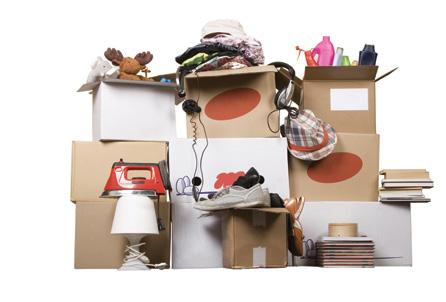
3 minute read
Tips for Your Off-Campus Housing Search
Your budget
Before you start looking, determine what you can afford to pay for rent. Things to investigate: • Can you afford a one-bedroom or studio, or will you need/want to share with roommates? • What are typical utility costs? (electricity/gas/water) • How about “extras” like cable/internet? • Will there be transportation costs to get to campus? • Will you need to purchase furniture and appliances? • Estimate moving expenses. • Look closely at food costs. You can save money cooking for yourself but it can be convenient (and healthier) to keep a partial campus meal plan. • Remember that you’ll need money up front in advance of moving in. Often, first and last month’s rent plus a security deposit are due upon signing a lease.
Check out our complete Budget Worksheet at bit.ly/cp-budget.
VARIABLES APARTMENT HOUSE
ROOMMATES
If you prefer privacy, consider a studio or one-bedroom apartment, but recognize that this will be the most expensive option. If you and your current roommate get along well, you might look for a two-bedroom apartment. Houses typically have more bedrooms and rent can be more affordable when split four or five ways, so this is a good option for larger groups of friends. Read more about choosing roommates on p. 11.
AMENITIES
May have a laundry room, added security and 24-hour emergency maintenance as well as perks like a pool and community social spaces and events. Is there storage for bikes? Is parking available and is it extra?
UTILITIES
Are they included? Is there air conditioning?
NOISE/SOCIABILITY
Depending on your neighbors, shared walls can mean more noise. College town apartment complexes often offer fun social activities.
RESPONSIBILITIES
Apartments are a more lowmaintenance choice and may work better if you’re not home much. Storage and parking may be better, but you may need to budget for trips to a laundromat. Repairs may take longer depending on the responsiveness of your landlord.
Houses can have some utility costs that aren’t at issue in apartments, such as trash service and additional water costs for landscaping. Be certain to include these costs in your calculations.
Houses can be quieter but may be isolating, especially if your neighbors aren’t students. You and your housemates will need to negotiate rules about noise/music/parties.
You may be responsible for lawn care, etc. Sharing a house with more people can make managing finances more complicated.
Meet the landlord and see the rental in person
Take a friend or your prospective roommate along to meet the landlord or property manager. Be sure to view the room/unit/house you will actually be renting (not a model) and confirm that the property is as advertised. Have questions ready, such as: What are typical utility costs? Is subleasing allowed and on what terms?
Find more tips for viewing a property on p. 13.
This may be the first legal document you’ve reviewed and signed on your own. If you don’t have a rental or credit history, your parent or guardian may need to co-sign the lease. Make sure they review the lease carefully, too!
Be clear about the following: • What’s required up front in addition to a security deposit? First and last month’s rent? • What are the conditions for getting your full security deposit back? • What dates does the lease cover? • What utilities are provided (heat, water, garbage collection, etc.)? • What are tenants’ responsibilities for upkeep (lawn mowing, landscape maintenance, minor indoor repairs)?
Document the condition of the rental
You will do a walk-through when you sign the lease. Make notes and take photos. Pay special attention to stains on the ceiling, holes in the walls, a cracked bathroom sink, etc. so that if there is a dispute at the end of the lease you can prove your case and get your security deposit back.
Purchase renters insurance

Renters insurance is a must when you live off campus. Your personal belongings are not covered by your landlord’s insurance. Renters insurance is affordable and will cover the loss of your possessions in case of fire, flood or theft. Renters insurance will also protect you if you accidentally damage another person’s property or if someone is injured in your apartment or house.






